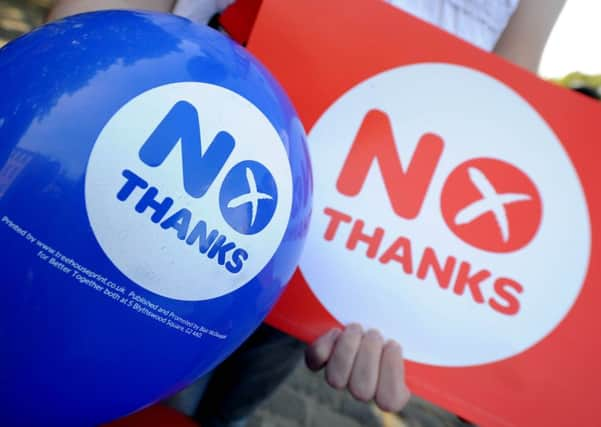Tommy Sheppard: Independence is still a simply capital prospect


Little wonder people are anxious. Many, from some unlikely quarters, are now asking if it might not be easier for Scotland just to become an independent country after all. Things are clearly going to change. The UK most Scots voted for in 2014 will not exist. The deal has changed. Perhaps the best way to give certainty to our businesses and citizens is to just go for it.
As the nights draw in and this discussion unfolds in the workplaces, pubs and homes of the city I really hope, unlike last time, we can think imaginatively about what independence could mean for Edinburgh.
Advertisement
Hide AdAdvertisement
Hide AdIt struck me as ironic that the one city which stood to benefit more than most from independence, voted against it in greater numbers than elsewhere. Being the capital of an independent country is a much bigger deal than being a big city in the UK.
For starters, every consulate will upgrade to an embassy and many countries that do not see the need to have representation here at the moment will undoubtedly do so. More than a thousand well-paying jobs would be established in the diplomatic sector and its support staff.
Edinburgh is already home to a large number of global companies, and has a thriving new tech sector. The existing new fintech sector employs over 17,000 people in Edinburgh, and the city hosts the offices of companies like Microsoft, Amazon, Skyscanner, Dell, Rockstar and Toshiba.
Major global companies will want to ensure that they are represented in an independent Scotland and without doubt most of them will seek to open office in Edinburgh to be near the constitutional centre. Again, even without production being transferred, this will create well paid jobs in public affairs, finance and administration.
Advertisement
Hide AdAdvertisement
Hide AdBut the biggest benefits could come to our already well developed financial sector, currently the largest after London. It added £4.5 billion to the UK economy in 2011, and almost 40,000 people are employed in financial services in Edinburgh. Over 30 banks have operations in the city, three of the UK’s leading insurance companies have their headquarters in Edinburgh – Standard Life, Scottish Widows and Aegon UK; six of the largest asset fund managers in the world have operations in Edinburgh and over £500 billion of assets under management in the city.
But the UK’s decision to leave the EU, and the Tory government’s appetite for a “hard Brexit” in which we also leave the Single Market, is endangering financial services jobs in the UK. Crucial to the presence of financial services companies in London and Edinburgh is the EU principle of ‘passporting’ – which allows them to access the European Single Market without restrictions. A total of 5476 UK-registered firms hold at least one passport to do business in another member state of the EU or the wider European Economic Area. A hard Brexit puts this in jeopardy.
With independence inside the EU, or at least the Single Market, Scotland and Edinburgh could be an even more attractive location for these companies fleeing London. We speak English, we are already a financial centre, and we already have local workforces who have skills in financial services. We could fully exploit the opportunity to persuade these financial institutions to locate in Edinburgh and unleash Edinburgh’s potential as a global financial centre.
Of course, in an independent Scotland we’d have full powers over banking regulations and can make sure big business pays its fair share in tax so the mistakes of the past need not be repeated and we’d reap the benefits of these sectors.
Advertisement
Hide AdAdvertisement
Hide AdAnd all of this is before we even start talking about a possible Scottish currency and central bank which now looks like an increasingly attractive option in an independent Scotland. Guess where that would be headquartered? I’m not asking the sceptics in the finance industry who backed Better Together to suddenly put on a Yes badge and join a campaign. But I am saying have a think about it. Things may not be as you thought they were.
Tommy Sheppard is SNP MP for Edinburgh East